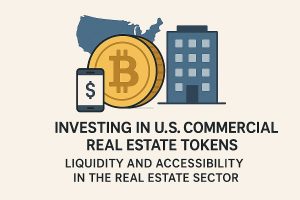In today’s rapidly changing economy, understanding the intricacies of finance is essential. For underserved communities in the USA, however, financial awareness can often be a challenge. Effective financial education serves as a crucial tool for these sectors, empowering them with the knowledge required to navigate the economic landscape.
With limited access to resources, many individuals in these communities face significant barriers that can hinder their financial stability. Initiatives aimed at enhancing financial literacy are crucial in bridging this gap, helping to reduce inequality and provide opportunities for a brighter economic future.
The scope of economic education initiatives

Understanding the reach of economic education initiatives is essential to appreciate their impact. Across the United States, programs designed to improve financial acumen are gaining momentum. Government agencies, nonprofit organizations, and educational institutions are all playing a part in this movement. They aim to provide communities with access to important resources that can significantly influence their economic well-being.
Many of these initiatives focus on critical areas such as budgeting, saving, investing, and credit management. Workshops tailored to specific demographics ensure that information is both relevant and actionable.
Furthermore, these programs often include mentorship and support networks to aid participants in implementing what they have learned in their daily lives. By embracing a holistic approach, these initiatives aim to foster a culture of financial confidence and sustainability.
Government and public sector involvement
The involvement of the government and public sector plays a pivotal role in expanding financial education within underserved areas. Numerous federal and state programs have been established to offer resources and support to marginalized populations. Initiatives like the Consumer Financial Protection Bureau (CFPB) provide educational materials and guidance to help individuals make informed financial choices.
Additionally, public schools are increasingly incorporating financial literacy into their curricula, equipping students with essential life skills from a young age. By starting education early, these programs aim to create a generation capable of making wise financial decisions. This initiative ensures that young individuals are prepared to handle their finances effectively as adults, disrupting cycles of poverty and economic disadvantage.
The role of nonprofit organizations
Nonprofit organizations are the backbone of financial literacy efforts in underserved communities. With deep-rooted ties in these areas, they uniquely understand the challenges faced and can tailor solutions accordingly. Groups like Junior Achievement and Operation HOPE have made significant strides in offering workshops and resources to support financial education.
These organizations often rely on volunteers and partnerships to deliver their programs, ensuring that efforts are both community-driven and grounded in local realities. The impact of such initiatives is profound, as they often bring about immediate as well as long-term benefits. By equipping individuals with the skills and knowledge necessary for financial mastery, nonprofits facilitate pathways toward economic empowerment and security.
Assessing the impact of financial education
Evaluating the effectiveness of financial education initiatives is essential in understanding their value to underserved communities. Metrics such as changes in financial behavior, increased savings, and reduced debt levels serve as benchmarks for success. Studies and feedback from participants provide insights into how these programs influence individuals’ financial decisions and overall quality of life.
For many participants, financial education is transformative, fostering a sense of empowerment and control over one’s economic future. When individuals gain confidence in managing their finances, they are more likely to pursue goals such as home ownership, education, or entrepreneurship. These shifts not only affect individuals but have a ripple effect on families and communities, promoting broader economic stability.
Real-world success stories
Real-world success stories highlight the positive outcomes of financial education initiatives. Across the country, numerous individuals and families have benefited from tailored programs that have opened doors to new opportunities. These stories serve as powerful reminders of the potential for financial education to effect meaningful change.
For example, many participants have increased their savings and improved their credit scores after attending workshops. These accomplishments pave the way for significant life improvements such as securing better housing, obtaining loans for education, or starting a small business. Testimonials from participants often reveal a newfound confidence and optimism about their financial futures.
Challenges and future directions
Despite the positive strides made by financial education initiatives, challenges still exist. Limited resources, cultural barriers, and misconceptions about financial management can impede progress. Additionally, reaching the most marginalized individuals remains a persistent hurdle for many programs.
To address these challenges, continued innovation and collaboration are necessary. Expanding digital literacy programs and utilizing technology can help bridge gaps and make educational content more accessible.
Emphasizing cultural relevance in program delivery and using community leaders as advocates can enhance engagement and effectiveness. Looking ahead, the future of financial education in underserved communities is promising.
As awareness of its importance grows, so too does the commitment of organizations, governments, and individuals to invest in these essential programs. By addressing existing challenges and building on current successes, financial education initiatives can continue to empower individuals and transform communities for generations to come.



